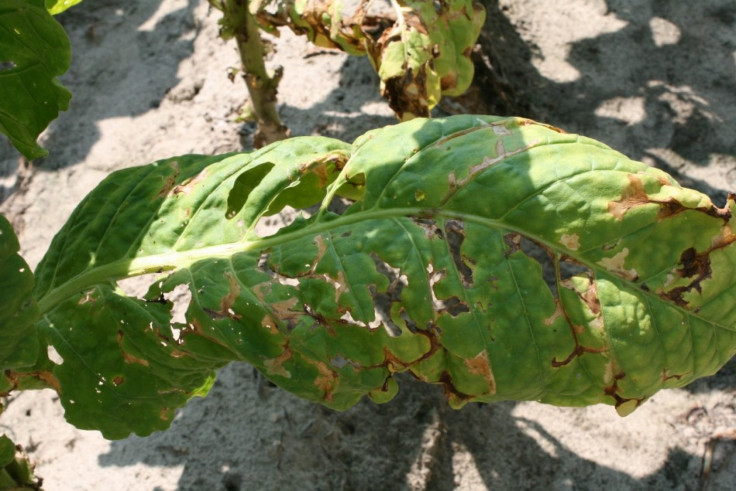Hurricane Irene Aftermath: North Carolina Farmers to Suffer Huge Financial Losses from Crop Damage

Crops in eastern North Carolina were damaged by Hurricane Irene, leading to huge losses for local farmers and likely hurting the state’s projected agricultural production for next year, according to the state’s Agriculture Secretary Steve Troxler.
Crop-wise, this is a very tough time of year to have something like this happen, Troxler said at a news conference Monday morning. There are going to be some crops that are a total loss in some areas.
However, he added that it will be several days before the full extent of damage to local farms will be known.
The storm arrived just as many farmers were planning to harvest corn, cotton, tobacco and other crops.
Followed by weeks of severe drought, farms across the region were suddenly battered by excessive rains, heavy flooding and fierce winds. Reportedly, some farmers have incurred near total loss this year.
Eastern North Carolina accounts for the lion’s shares of the state’s $70-billion agricultural sector.
According to reports, the vast majority of North Carolina’s corn, tobacco, soy bean, hog and turkey production facilities are based in the eastern part of the state.
In addition to basic crop destruction, power outages have likely damage tobacco leafs and killed millions of chickens.
The state’s famous tobacco crop – valued at $750-million annually – is likely to suffer tobacco hundreds of millions of dollars, Troxler warned.
He also said: About every major crop is going to be affected. This is the heart of agriculture in the state. Every year is a gamble. If you invest a lot of money and you lose, that's going to take you down.
Loren Fisher, a professor of crop science at N.C. State University, told local media that farmers along the coast of the state (where the storm had its greatest impact) could lose up to 90 percent of their crops.
Federal crop insurance could recoup some of the farmers’ losses, however Troxler said most North Carolina farmers are only covered up to about 65 percent.
However, a federal declaration of disaster may allow farmers who have suffered substantial losses to receive loans at a modest interest in order to carry them over financially until next harvest season.
© Copyright IBTimes 2025. All rights reserved.





















